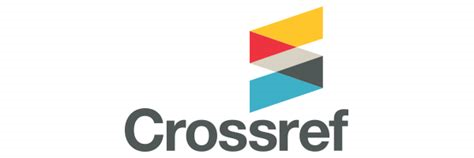Special Issue Call for Paper
SI Title: Aquaculture and Fisheries in Africa: Current Status, Challenges, Innovations, and Sustainable Solutions
1. Introduction and Rationale
Aquaculture and fisheries play a pivotal role in Africa's food security, livelihoods, and economic development. With a rapidly growing population, increasing demand for animal protein, and the vulnerability of natural fish stocks, aquaculture has emerged as a key strategy to supplement wild fisheries and ensure nutritional resilience. However, the sector faces numerous challenges ranging from environmental degradation and climate change to limited access to technologies, investment, and policy frameworks.
Africa is also a hotbed of innovation and traditional knowledge in fisheries, with diverse ecosystems—from the Nile and Congo River basins to the great lakes and coastal marine environments—supporting a rich tapestry of aquatic biodiversity and fishing cultures.
Despite its significance, African aquaculture and fisheries research remains underrepresented in global scientific discourse. This proposed collection aims to fill this gap by bringing together cutting-edge research, reviews, and perspectives from across the continent to foster collaboration, visibility, and impact.
2. Scope and Themes
The proposed collection titled “Aquaculture and Fisheries in Africa: Current Status, Challenges, Innovations, and Sustainable Solutions” will feature interdisciplinary research and case studies that address both freshwater inland and marine systems, capture fisheries and aquaculture production, and the socio-economic and environmental contexts in which they operate.
Key thematic areas include:
- Sustainable Aquaculture Practices
- Hatchery technology, life food, and water quality management
- Indigenous and underutilized species in African aquaculture
- Aquafarming systems in Africa
- Fish Feed development for sustainable aquaculture in Africa
- Invertebrate aquaculture in Africa
- Fisheries Management and Conservation
- Community-based and traditional fisheries governance
- Stock assessments and ecosystem-based management
- Marine protected areas and inland fisheries policy
- Climate Change and Environmental Impacts
- Effects of climate variability on fish stocks and habitats
- Adaptation strategies and risk assessments
- Aquatic Animal Health and Disease
- Disease surveillance, diagnostics, and epidemiology
- Emerging pathogens and antimicrobial resistance
- Vaccination and biosecurity measures
- Technology and Innovation
- Digital tools, remote sensing, and data analytics
- Breeding programs and genomics in aquaculture
- Intelligent and climate-smart aquaculture systems
- Socio-economic and Policy Dimensions
- Gender, youth, and equity in fisheries and aquaculture
- Market access, value chains, and livelihoods
- Policy analysis and institutional capacity building
3. Target Audience
This collection will be of interest to:
- Researchers and academics in aquaculture, fisheries, marine biology, and environmental science
- Policymakers and practitioners working in aquaculture, natural resource management, and food systems
- Development agencies and donors involved in African food security and rural development
- Private sector stakeholders, fish farmers, and fishers
4. Expected Impact
This paper collection will:
- Elevate African research contributions to global knowledge on aquaculture and fisheries
- Promote south-south collaboration and cross-regional learning within Africa
- Provide actionable insights for sustainable practices, investment, and policy design
- Serve as a reference for governments, organizations, and stakeholders in shaping future strategies of aquaculture and fisheries in Africa
5. Editorial and Review Strategy
Guest Editor: Prof. Hosam Elsaied
Professor of Blue Genomics and Gene Biotechnology
Aquatic Metagenomics and Gene Biotechnology
National Institute of Oceanography, Egypt
Email:
The collection will be curated by a guest editor Hosam Elsaied, and his team, comprising leading African and international scientists with experience in fisheries, aquaculture, and development. A rigorous peer-review process will ensure high-quality contributions, with opportunities for early career researchers and practitioners to participate.
6. Timeline
| Activity | Proposed Date |
|---|---|
| Call for papers opens | June 2025 |
| Submission deadline | September 2025 |
| Peer review and revisions | October-December 2025 |
| Final publication (online) | January 2026 |
7. Conclusion
This proposed collection seeks to spotlight Africa’s aquaculture and fisheries sector at a critical time for food systems transformation and climate resilience. Through the consolidation of diverse perspectives and evidence-based research, it will contribute to knowledge exchange, capacity building, and the advancement of sustainable aquatic food production across the continent.







